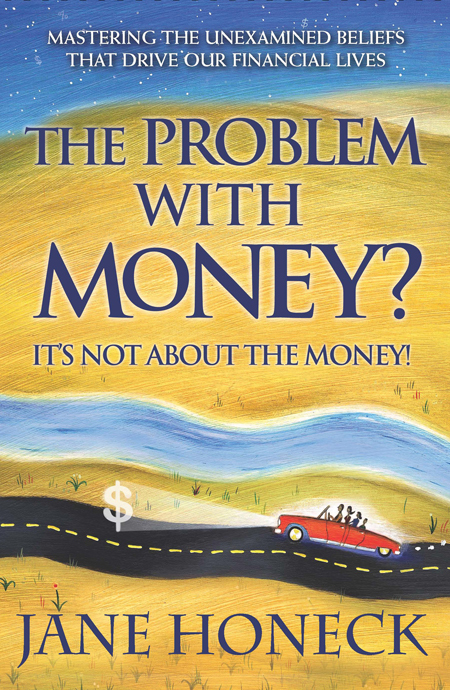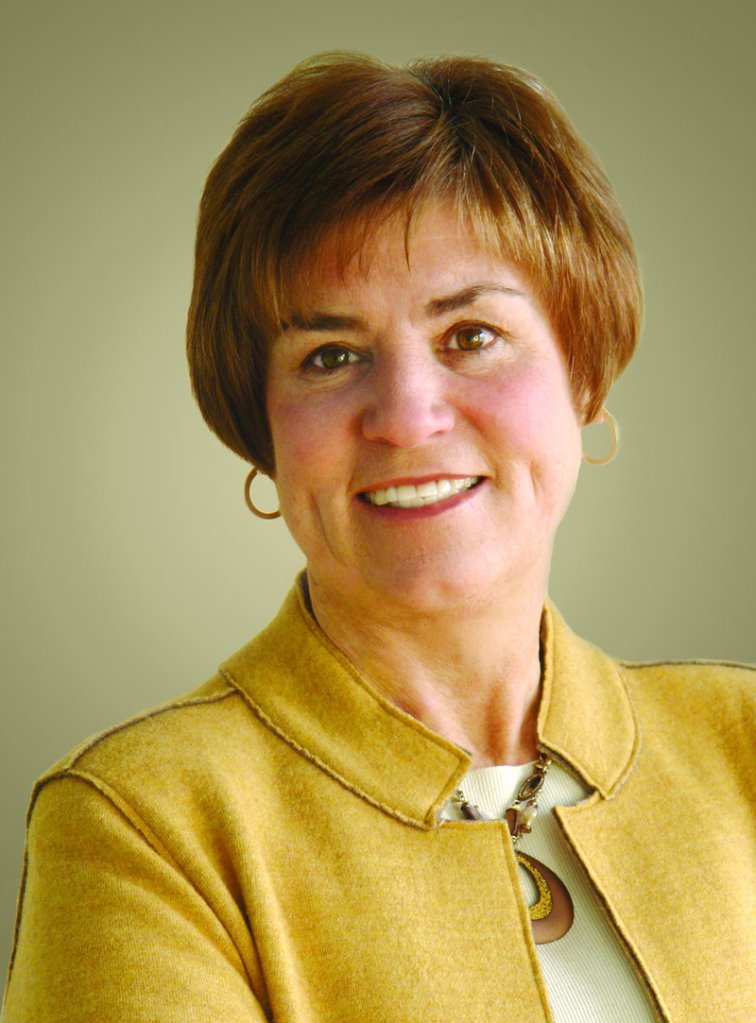Jane Honeck is a certified public accountant in Portland, but she has gone way beyond handling people’s taxes. First she became a personal financial specialist, which is what CPAs call it when you are a financial planner.
She found that she would advise people and couples about how to handle their financial problems, and the clients would leave her office determined to follow the plan. But later they would come back, still in financial trouble.
Honeck then studied to become a Certified Empowerment Trainer, and figured out that people have money problems because of the beliefs they hold about money. And the way to improve their finances is to change their beliefs.
“The Problem with Money: It’s Not About the Money!” is based on what she learned in her work as a money coach. Although only 122 pages long, the book is filled with exercises to help readers discover what their money beliefs are, and how some of them might be false.
The book is a finalist for the 2011 ForeWord Reviews self-help book, the Next Generation Indie Book Awards how-to book and the Eric Hoffer Award for self-help books.
She writes a weekly blog about how we look at money at janehoneck.com/blog.
Q: Explain how you made the switch from CPA to personal financial specialist and money coach.
A: A personal financial specialist is the CPA term for financial planner, and for most of my career, I did both taxes and advising people. The switch came when I became a Certified Empowerment Trainer and started working with individuals and couples to help them look at the beliefs behind their financial issues.
During all of my work as a traditional CPA, I would work with people and advise them what to do, and who really want to make a change in what they are doing financially. But it doesn’t happen, and they would come back with all this shame and blame. But now, with my own personal experiences and empowerment training, I can get them to address their beliefs about finances and really make a change instead of doing the same thing over and over again.
Q: It sounds like a lot more fun than being a traditional CPA.
A: It is endlessly more fun. I feel like I have died and gone to heaven. This year was the first time in 25 years I didn’t do taxes, and it felt like I had my life back at that time of year. It is so rewarding to work with people, especially couples.
People don’t talk about money, and money is the real stressor in a relationship, so they talk about it even less. When I work with couples, one of the things I do first is ask them what money looked like when they were a child. Starting there, I get them to look at each other and understand why they picked up the money beliefs they did. And then I try to bring them together somewhere in the middle.
Q: Even forgetting the current Wall Street and mortgage meltdown, even back in the ’80s when finances were good, it seems that people are having more trouble with money than they used to. Are people having more trouble with money for the past quarter-century or so than they did in the past?
A: I think that is true to a certain extent. I think it goes back to what society is telling us about money. Back then, it was more conservative and people made sure they had money for the future. Then we got beyond the World Wars, and America had this booming economy, and to keep it booming we had to become a consumer society.
The societal message is all about buying and getting the best, and we morphed into a society that is all about buying and refinancing your house so you can buy more.
And then the companies that, in the ’50s and ’60s provided lifetime pensions, stopped them, so we no longer have that safety net. They provide 401(k)s, but people don’t have money to put in those, and many people don’t understand enough about the market to invest effectively.
Q: I look at your book and figure, 122 pages, I can whip through that in a couple of hours. But if someone is going to do all the homework the way you advise, it could take weeks. How much time should it take a person to go through the transformation?
A: It’s a long process. I think it is best for people to just read through it first, and then go back and do the exercises. One person who did it told me, “I didn’t think I was going to have to go back into therapy.”
But I did try to keep it fairly easy reading, especially at the beginning, and I pride myself that there are almost no numbers in it.
Q: In your money coaching, do you have your clients read your book?
A: Some of them do, but when we do money coaching, it is designed specifically for each client. They usually have something specific they want, like get rid of credit card debt or pay down the mortgage, and then go on to other things. It usually takes six sessions.
Q: The subtitle says, “It’s not about the money,” but it does seem to be about the attitudes and beliefs that people have about money. So is it about the money secondhand?
A: When we have money problems, underlying them are what beliefs and what values led you to have all that credit card debt. If you paid it all off, would you keep it paid off, or would you keep coming back to the same place? In order to solve the problem about money, you have to solve the belief problem.
Q: Anything you want to say that we didn’t cover?
A: Well, I sold the rights to have the book published in Finland, translated into Finnish. And publishers in 10 other countries have shown interest, so money is a problem all over the world, not just the United States. And I am just finishing an audio version of the book. I know it is irritating when I tell people in the book to close their eyes and visualize something, and they say, “but I’m reading.”
Tom Atwell can be contacted at 791-6372 or at:
tatwell@pressherald.com
Send questions/comments to the editors.



